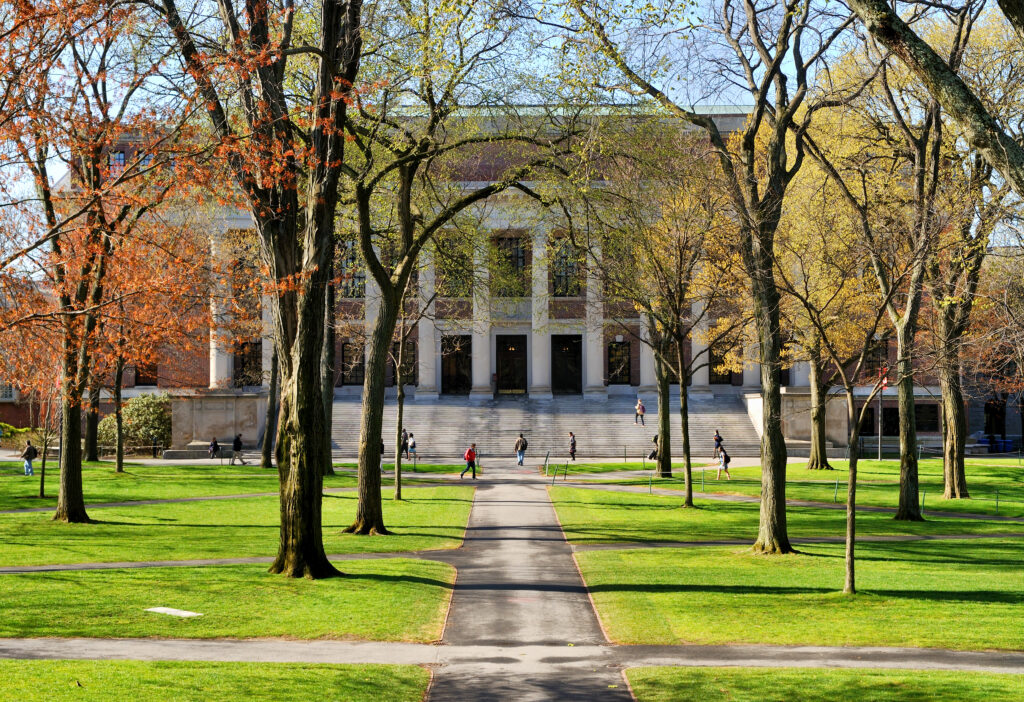A provocative article in the July 14 Stamford Advocate headlined, “Americans are widely pessimistic about democracy in the United States, an AP-NORC poll finds,” requires perspective. I’m not challenging the accuracy of the poll, but as CEO of the Institute of International Education (IIE) I would like to suggest that perceptions beyond our borders are far more optimistic. And it’s important to recognize that the rest of our tumultuous world is counting on us to never give up on our commitment to democracy.
When a poll conducted by as respected a source as The Associated Press-NORC Center for Public Affairs Research finds that in our country, “Only about 1 in 10 U.S. adults give high ratings to the way democracy is working in the United States or how well it represents the interests of most Americans,” there is reason for international concern.
IIE promotes the exchange of scholars and students, rescues scholars, students, and artists from persecution, displacement, and crises, conducts research on international academic mobility, and administers the Fulbright program sponsored by the U.S. Department of State. We work every day with people from around the world who see the United States and our democratic institutions, imperfect as they may be, as nothing less than beacons of hope. Freedom of religion and expression, the rule of law and individual liberties are the cornerstones of democracy and the promises we’ve made not just to ourselves, but to people from all corners of the globe.
Here’s what I see: Despite the political and cultural battles that may be dampening our spirits at home, there is no place I go where people don’t want to come here to work or go to school. “Give us your tired, your poor, your huddled masses yearning to breathe free,” is an invitation seen as sincere and still operable because of our core belief in democracy.
Just the other day, a young student from Ukraine said to me, “I feel empowered to share my experiences and help others understand the value of democracy and why it’s needed. I also think my role as an ambassador involves educating myself as much as possible and helping people understand the more intricate moments of democracy.”
The world has never needed America and democracy more.
According to statistics compiled by the United Nations Refugee Agency, at the end of 2022 there were 108.4 million, “forcibly displaced” people, including 43.3 million children, worldwide as a result of “persecution, conflict, violence, human rights violations or events severely disrupting public order.” Of the 35.3 million refugees in this total, half are from just three countries: Syrian Arab Republic (6.8 million); Ukraine (5.7 million); and Afghanistan (5.7 million).
IIE’s programs are focused on helping refugees from these three nations and others. We know from our more than 100 years of experience assisting displaced students and scholars that following crises these individuals desperately seek opportunities to engage in higher education and build bridges through academia. We also know that these brilliant, motivated people, who have the potential to play a critical role in shaping a better future for their nation and the world, look to America for help.
In fact, one of the industries that define American prosperity, goodwill and strength on the world stage is education. Our nation has been the destination of choice for international students wishing to study abroad for more than a century. The open, tolerant environment of democracy is one of the most important reasons our country is such an attractive destination. That’s been a very good thing for the students, our country and the world.
In 2021, the U.S. Department of State and the Department of Education issued a “Joint Statement of Principle in Support of International Education.” The statement affirms:
“The robust exchange of students, researchers, scholars, and educators, along with broader international education efforts between the United States and other countries, strengthens relationships between current and future leaders. These relationships are necessary to address shared challenges, enhance American prosperity, and contribute to global peace and security.”
Prior to the COVID pandemic, the number of international students studying in the United States exceeded one million. Last year, the number recovered to 950,000 and continues to grow. These students will be enrolled in 4,000 colleges and universities in all 50 states and the District Columbia.
What does the U.S. get in return from these relationships? In all but the rarest cases, America has a friend for life in each and every international student who comes here to study. For those who go back to their home country, they have been exposed to American companies, products, customs, culture, and so much more. The future of American commerce and global influence is dependent on the U.S. being a destination for international students. For those who stay, we gain capable, educated and driven people —our plumbers and electricians, doctors and nurses, researchers and students — who have adopted America as their country and will go on to win Nobel Prizes.
So, let’s not let our pessimism and divisions dampen our belief in democracy, an institution the rest of the world, no strangers to conflict, understands we’re still working to perfect. Examined in the context of human history, it’s still an experiment. And we must never forget that people around the world, who dream of coming here to live, work or go to school, are trusting in us to keep the flame of freedom alive.
